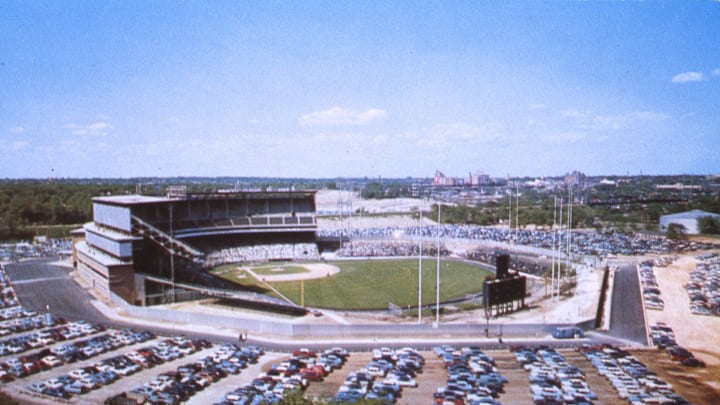John Richard “Joey Jay” dominated batters in American Legion baseball and threw three no-hitters for Middletown Woodrow Wilson High School. The Braves won the bidding war for Jay, signing him to a contract worth a small fortune at the time and $472K in today’s dollars.
The Hall of Fame remembers Joey Jay, a 1961 All-Star who pitched 13 seasons for the Braves and Reds, who passed away Sept. 27. pic.twitter.com/DEGmo96WVl
— National Baseball Hall of Fame and Museum ⚾ (@baseballhall) October 29, 2024
The Bonus rule damaged the careers of many players including Joey Jay
The signing bonus meant Jay fell under the Bonus Rule, a crudely crafted rule designed to prevent the Yankees, Dodgers, Cardinals, and Red Sox from using their deep pockets and the reserve clause to sign and hold the most talented players indefinitely.
Jay had to spend the next two seasons on the 25-man roster when he should have been learning his craft at his own pace in the minors. Instead, Jay worked in the bullpen when coaches could find the time for him, which wasn’t often, and According to his SABR bio, it wasn’t fun being a bonus baby.
"There was plenty of resentment toward rookie Jay in the Braves clubhouse, and the veterans were not afraid to let their disdain show over the next two years. “It was pretty dreadful. I fitted in nowhere,” Jay said. “No one was deliberately unkind to me. I was just ignored and felt like the batboy.""Joey Jay
He won his first game with a start in the last game of the 1953 season, going six+ innings before the game was called for darkness. The Braves finally sent him to the minors in the second half of the 1955 season, where he overcame his wildness and command over the next two seasons.
Breakout season ended by injury
After spending the first 10 weeks of the 1958 season languishing in the bullpen, he was given a start and made the best of it. From June 13 through July 29, Jay threw 77 1/3 innings over 10 starts while pitching to a 1.40 ERA, earning him NL Player of the Month honors in July. But it wasn’t all good news.
Jay strained his flexor tendon in his last July start. Today, he would have had an MRI and gone on the IL immediately, but in 1958, the MRI was a theory that wouldn’t exist for 20 years. The Braves rested him for 12 days, tested his arm with two innings in relief, and put him back in the rotation on August 15. He managed to win that start, but his next outing was a disaster, and his breakout season ended,
It wouldn’t surprise today’s fan that Jay’s 1959 was subpar, but he returned to form in 1960, pitching to a 3.24 ERA on 133 1/3 innings as a swingman out of the pen.
